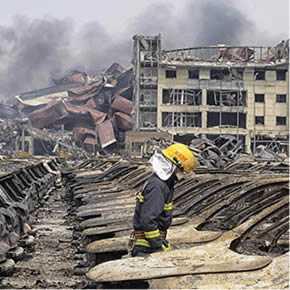Typhoons, terrorism, the threat of war, tsunamis, earthquakes, and epidemic disease. These are but a few of the challenges Asian companies have confronted since the century began. Risk is not new. What’s new is that ever-more-complex business models make companies vulnerable to risk as never before. What’s new, too, is that we are running up against resource limits—especially with water and carbon—that put even simple business models at risk. For their own corporate survival, companies need to assess risk and build in resilience both in terms of understanding their exposure to climate change and, at a more granular level, its impact on their supply chains. With this in mind, the Asia Business Council examined the tools for starting the process of minimizing risk and increasing resilience, looking at short-, medium-, and long-term opportunities and challenges. We also considered how to reconcile short-term corporate needs with long-term planetary challenges, showing that de-risking and increasing efficiency often lead to cost savings.
Climate change is one of the key factors raising business risk in Asia. Geopolitical risks are difficult to predict; natural disasters such as earthquakes are somewhat random. But there is strong scientific consensus that the atmosphere is warming as a result of human activity, and that Asia will feel these effects disproportionately. Asia is particularly at risk because of the increasing number of severe storms, the number of people in poverty, and because so many of its people—and companies—are near water and subject to sea water rise and floods. In the short-term, it is imperative that a company have robust plans for business continuity and disaster recovery. Medium-term actions include better understanding and managing suppliers, increasing resource efficiency, and systematically developing strategic foresight to plan for and analyze the potential impact of uncertain events. Finally, long-term actions center on setting and achieving corporate sustainability goals, building better infrastructure, and committing to international agreements to take collective action on business resilience and sustainability.

